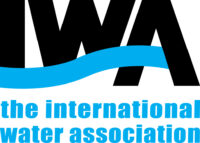Format
Self-paced courses
Water Utility Financing
Target Audience
The course is designed primarily for those who are involved in Water Utility Finance. However, professionals who work with them, such as national and sub-national government officials, regulators, potential private sector investors, academics, donors and other partners interested in the delivery of water and sanitation services will certainly benefit from taking the course as well.
Description
While strides have been made over the past few decades in expanding water security worldwide, there is still much more to do to reach world’s sustainable development goals. Reaching these targets require significant increases in both public and private financing, which is necessary to expand infrastructure, maintain assets, hire and train staff, and close the gap for both water and sanitation services. However, current funding is not sufficient to achieve the goals.
When water utilities become more efficient, clarify and rationalize their policies, institutional, governance and regulatory arrangements to finally achieve creditworthiness, more public and private finance flows to deliver and maintain water and sanitation services.
The Water Utility Financing course provides an overview on how to evaluate and improve the utility’s financial performance. It also focuses on how to make the utility credit worthy for attracting commercial financing and achieving financial sustainability.
Content
This course consists of five modules, which includes a course-end assessment module. The modules include;
- Module 1: Fundamentals of Utility Financing, discusses the basic financial concepts and unique aspects of a water utility.
- Module 2: Financial Aspects of Water Utilities, discusses the different types of financial statements issued by water utilities.
- Module 3: Applied Financial Concepts, introduces some of the critical financial concepts.
- Module 4: Utility Finance in Practice, focuses on measuring the creditworthiness of water utilities.
- Module 5: Assessment, comprises 15 randomized questions.
Learning objectives
- Understand the importance of achieving financial sustainability and how it influences the ability to leverage commercial finance in the water sector.
- Identify key factors impacting, and learn how to attain, financial creditworthiness.
- Diagnose utility and service provider performance, operating efficiency, and readiness to tap private markets.
- Describe how potential lenders evaluate financing decisions.
Free
Certification

